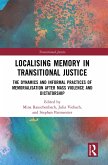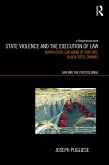This book places the current wave of religion-based terrorism in a historical perspective, explaining why religion is associated with terrorism, comparing religion-based terrorism to other forms of terrorism, and documenting how religion-based terrorism is a product of powerful political, socioeconomic, and psychological forces. Religion-based terrorism is perceived as one of the most significant threats to U.S. homeland security in the 21st century. Sacred Terror: How Faith Becomes Lethal makes the central argument that religion-based violence and terrorism is primarily a result of political, socioeconomic, and psychological forces, thereby demystifying religion-based terrorism and revealing its inherent similarity to other forms of terrorism and war. Daniel Price examines religious texts and traditions in Judaism, Christianity, and Islam; looks at the history of religion-based terrorism; and explores why religion facilitates violence. He builds upon this foundation to explain how religion as an ideological force that motivates violence is not as powerful as commonly believed, and that religious fervor is not unlike other non-religious ideologies such as Marxism, nationalism, and anarchism. The work also presents in-depth analysis of the political, socioeconomic, and psychological forces that are behind religion-based violence, and discusses case studies from multiple religions that illustrate the author's argument.
Bitte wählen Sie Ihr Anliegen aus.
Rechnungen
Retourenschein anfordern
Bestellstatus
Storno









